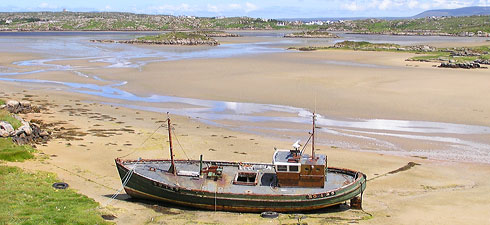An event of lasting political significance has taken place with the vote on the second Lisbon Treaty referendum. More than 800,000 people, representing close to one-third of the electorate, who voted 'No' in 2008 have been disenfranchised. The act of doing this took place more than a year ago, when the Government -- without any guarantees at all for what they did -- broke trust with a national democratic decision, one that is enshrined in our Constitution and should have an absolute value, as referendums have had in the past.
The three main parties, Fianna Fail, Fine Gael and Labour, which in the previous general election had represented the overwhelming majority of voters, chose to turn their backs on those voters who had won in the referendum. Neither the victory of those voting 'No', nor their growing concerns at the legality, fairness and constitutional conformity of what followed, carried any democratic weight at all. This was disenfranchisement of a high order.
The word enfranchise means 'to set free' and is generally related to the achievement under any democracy of representation by the people in their parliaments. The decision to go back on what a majority had decided was a deliberate removal of this right. The European Union connived in what was being done and became party to it, in a manner that included direct campaigning, funding support for the 'Yes' campaign and the deliberate manipulation of facts about the Lisbon Treaty.
The treaty has divided Europe
This tainted the outcome irreversibly. Worst of all, however, for those both in power and in opposition, is the inescapable fact that a vacuum surrounding those who voted 'No', not once but twice, has been created. Because of this, those who again voted 'No' now represent what I would describe as a 'Fourth Force' in Irish politics. This body of opinion, angry, cheated, abused and widely dismissed, probably does not represent as many people as the three main parties - hence the name that I give it - but the people involved are sufficient, if they organise and decide to act politically in the future, to make a significant impact. There are many people in the country, both 'Yes' and 'No' voters, who would welcome this. Sinn Féin, however, who again campaigned against the treaty, will not fill this vacuum.
As to the European Union, its troubles with the Lisbon Treaty are far from over. As a mechanism, the treaty has not united Europe. It has divided the 500 million population and the division has worsened under the atmosphere of economic crisis. The gaze Europe has turned on Ireland is of a very mixed kind. Taoiseach (Prime Minister) Brian Cowen and his 'Yes' campaign have tried to represent this in a deeply negative way.
Ireland has been divided deeply by this electoral campaign and the damage done will not easily pass over
Do you like our work?
Help multilingual European journalism to thrive, without ads or paywalls. Your one-off or regular support will keep our newsroom independent. Thank you!












